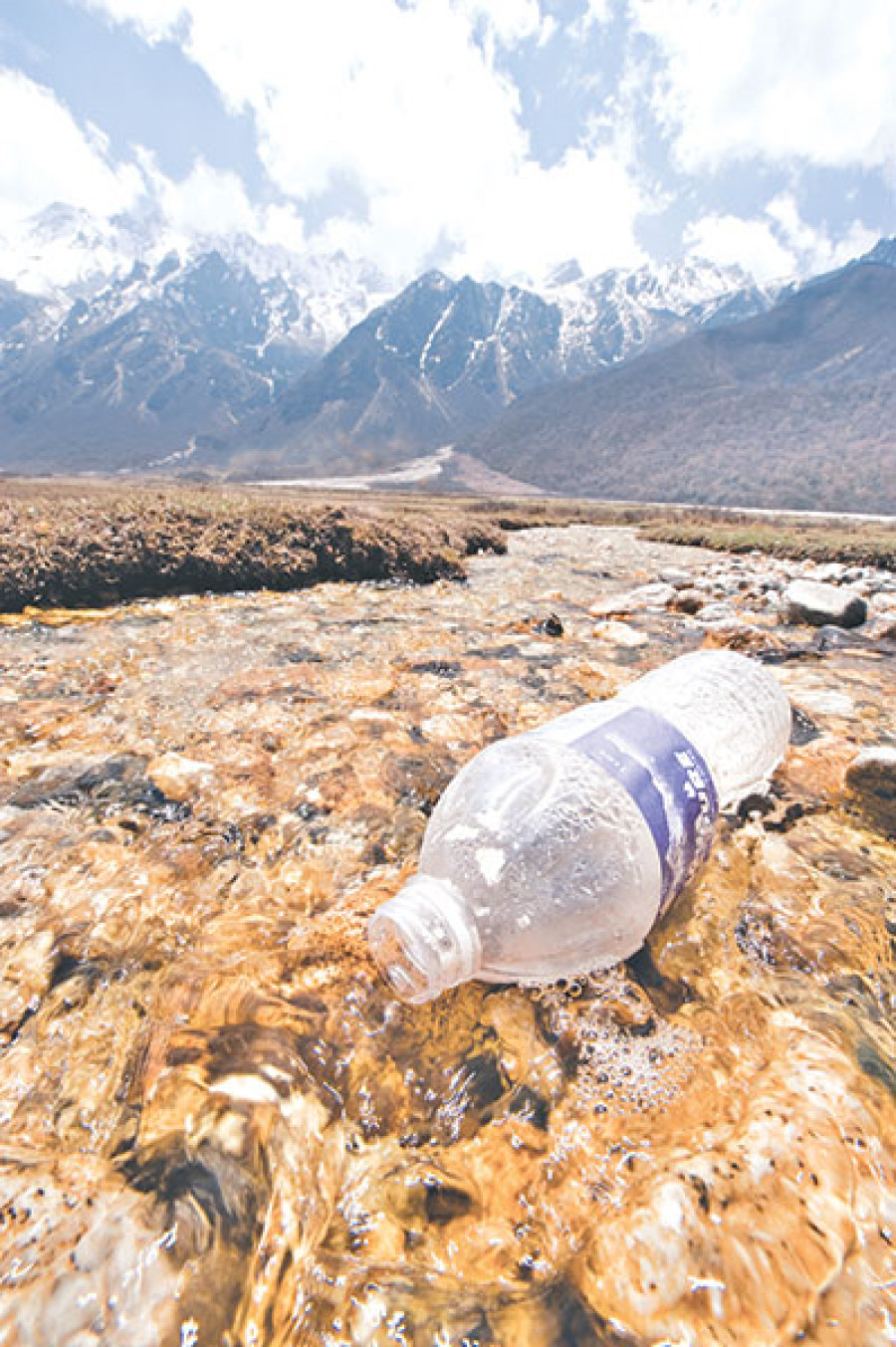Opinion
The last straw
The government, manufacturers, retailers and consumers need to arrive at solutions to beat plastic pollution
For every minute spent reading this article, about three million plastic bags and bottles will have been sold globally!
But this could be just the tip of the iceberg. Plastic is creating a 400-year problem—that is 16 generations. The root cause of this is plastic taking up a major part of our everyday lives and the fact that 91 percent of plastics are not recycled. Plastics are irresponsibly disposed everywhere, from people’s backyards and cities to finding their way into rivers, oceans and the highest peaks on earth. This has a direct impact on the health of our ecosystem, the lives of marine animals and ultimately us.
Without realising it, we are eating plastic; ¼ of fish are found to have plastic in their gut. We are drinking plastic; 83 percent of tap water samples have been found to contain plastic. We are breathing plastic; microplastics are linked to air pollution.
Interestingly, plastics have now replaced nearly every portable and non-portable product, bringing it into the limelight as a major cause of pollution. However, the fact of the matter is that the major pollution problem is not caused by non-portable plastic products but by the portable or disposable ones such as bags, bottles, cutleries, glasses, plates, straws, and packaging materials, among others. Though these plastics are recyclable, lack of information and awareness on waste management, lack of infrastructure for waste segregation and recycling, and weak enforcement of policies have led to increasing impacts of plastic pollution.
In Nepal, the scale of irresponsibly disposed portable plastic products along with other wastes has polluted many of our cities, rivers, mountains and trekking routes. Kathmandu’s Bagmati River is a classic example where clean-up campaigns remove tons of plastic and garbage every week. Research indicates that around more than two million plastic bags are used in Kathmandu every day. The government had also announced a ban on plastic bags under 30 microns in 2016 which showed immense potential to keep a check on plastic pollution but which unfortunately lacked in effective implementation.
Need for collective effort
What is indeed plausible is the effort being taken to clean up our cities and rivers of plastic. The Bagmati Clean-up Campaign has brought together the government, civil society, private sector and the general public to keep rivers clean from garbage. The campaign, ‘No Thanks I Carry My Own Bag’ was an innovative means to replace plastic bags with reusable cloth bags while lobbying the government to impose a ban on plastic bags in Kathmandu. Likewise, enterprises such as Khali Sisi and Doko Recyclers are helping inculcate the habit of recycling waste among urban households. Some multinational organisations are already being more accountable by investing in programmess that recycle plastic packaging of their products, while several large departmental stores have completely done away with plastic bags for shoppers.
The onus therefore rests on both individual and organisational responsibility and accountability in keeping a check on plastic pollution. World Environment Day this year is but one of the several avenues being established towards this end.
World Environment Day is being celebrated on 5th June with the theme #BeatPlasticPollution. The message is a call to action for individuals and organisations to take simple and bold steps to move away from disposable and single-use plastic. The message is as simple as refusing what you cannot reuse. Some examples include giving up plastic bottles for reusable ones, switching to reusable cloth bags from plastic bags, ditching plastic straws and settling for metal or biodegradable straws if needed, and refusing plastic food containers.
The question is, are these steps enough? In part, yes, as a growing and global movement that encourages responsible behaviors with single-use plastic and promotes individual actions add up to create collective impact. The missing piece for a country like Nepal, however, is legislation and more so, its implementation. An effective ban on plastic bags needs to be realised while building ground for other single-use products complemented by awareness building programs. Recycling enterprises need to be further promoted at both urban and rural centres and engagement with the corporate sector and civil society stepped up in the management of plastic waste.
Of course, this herculean task cannot be attributed to any single entity but rather encourage collaborations between the government, manufacturers, retailers and consumers to arrive at solutions to beat plastic pollution.
Manandhar is the Deputy Director of the Climate and Energy Program at WWF Nepal




 9.89°C Kathmandu
9.89°C Kathmandu









